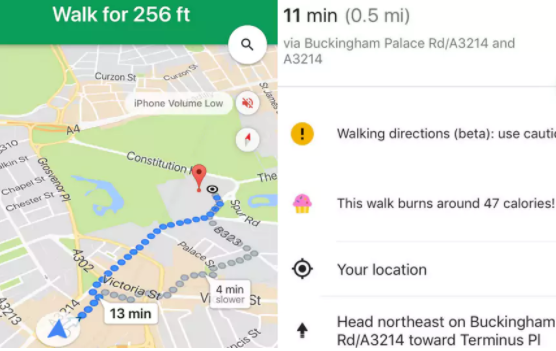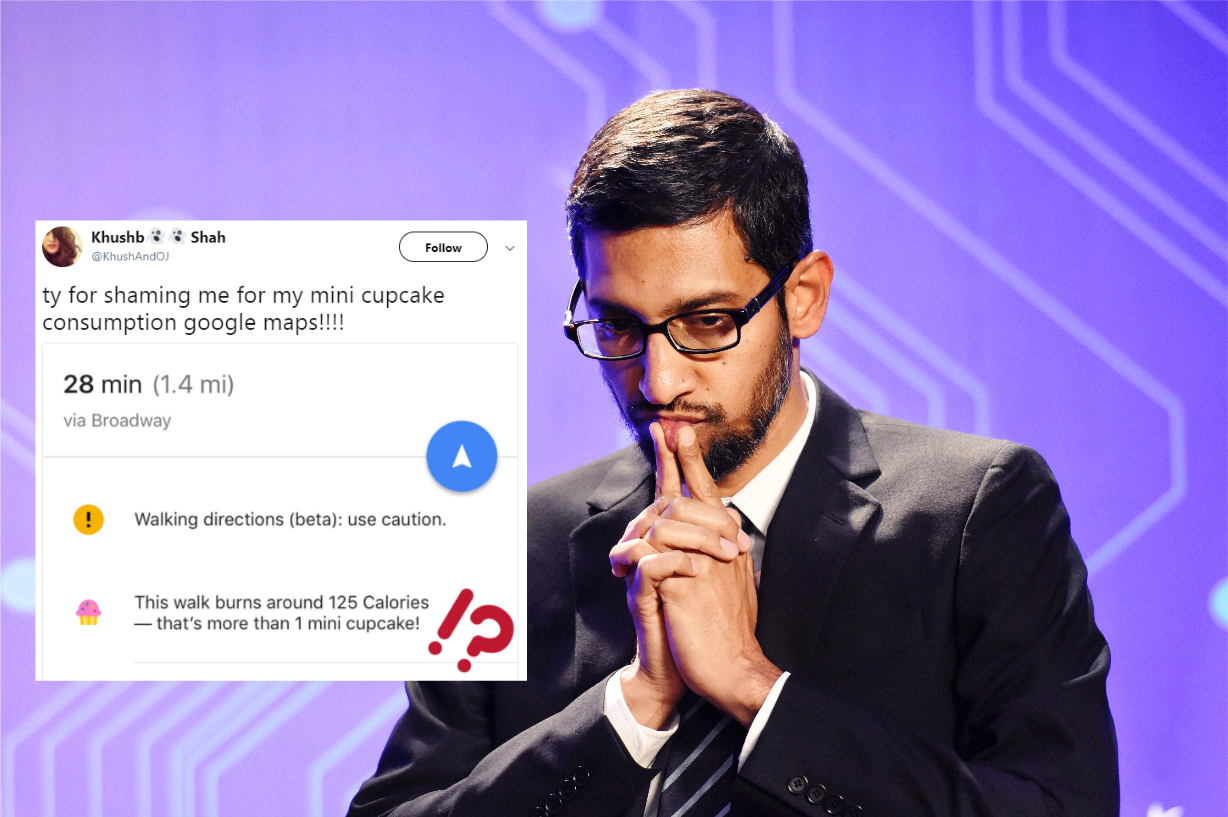Easily-offended people are now influencing product development decisions at large tech companies.
Earlier this week, Google Maps rolled out a feature that let users know how many calories they’d burn if those chose to walk to their destination, as opposed to taking the car. The Google Maps UI showed a small calories burnt number next to the distance walked, and to put the number into context, it showed a little factoid, saying that one cupcake contained 110 calories.

It seemed like an admirable product add-on — users could immediately see the benefits of walking, right into their Google Maps apps. Obesity is a rapidly growing global problem, and is especially severe in the US — as many as 70% of Americans are obese, and as many as 30% are overweight. Also walking is one of the cheapest and easiest ways to burn calories, and its health benefits are well documented.
But a section of Google’s users were “offended” by the feature.
Idk whose idea it was to add to google maps walking routes both the estimated calories burned and an equivalent food, but they can GTFO ??
— Deirdre (@deirdresaurus) October 13, 2017
Some people thought the feature was somehow “shaming.”
ty for shaming me for my mini cupcake consumption google maps!!!! pic.twitter.com/nYwNHMJFqa
— Khushb?? Shah (@KhushAndOJ) October 16, 2017
And some were “triggered”.
Do they realize how extremely triggering something like this is for ppl who have had eating disorders? Not to mention just generally shamey
— Taylor Lorenz (@TaylorLorenz) October 17, 2017
Stung by the backlash on Twitter, Google yesterday chose to remove the feature from future updates.
The decision drew sharp reactions from on Twitter. Several people thought that a small group’s outrage would cause lots of other users to miss out on the benefits of this information.
Google Maps removes calories burned feature because it triggered fatties.
Stop conforming to people's bad lifestyle choices. https://t.co/KACaaCve1x
— Paul Joseph Watson (@PrisonPlanet) October 17, 2017
Noted investor and member of the PayPal mafia Keith Rabois thought the outrage around the feature showed why healthcare costs were so high in the US. People are reluctant to directly tackle obesity, and it ends up costing the US $117 billion a year in healthcare costs and indirect loss of income — that’s more than the money lost through smoking.
And this is why health care costs so much. https://t.co/daK4Ok6gcH
— Keith Rabois (@rabois) October 17, 2017
Tech companies such as Google now find themselves in a pretty tricky position. They have billions of users, and it’s hard to introduce new features that appeal to absolutely everyone. And social media has allowed people to voice their outrage about the most innocuous things; and even the smallest issue can blow up into a PR disaster. Product management was a difficult enough job; with outrage from fringe groups to be considered, it’s just become even harder.
